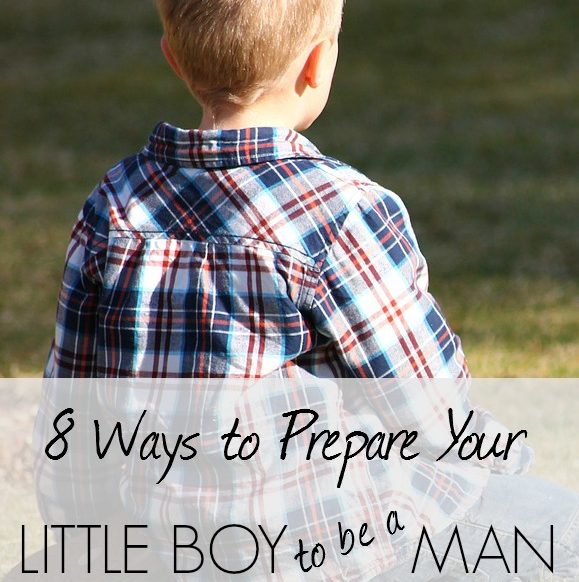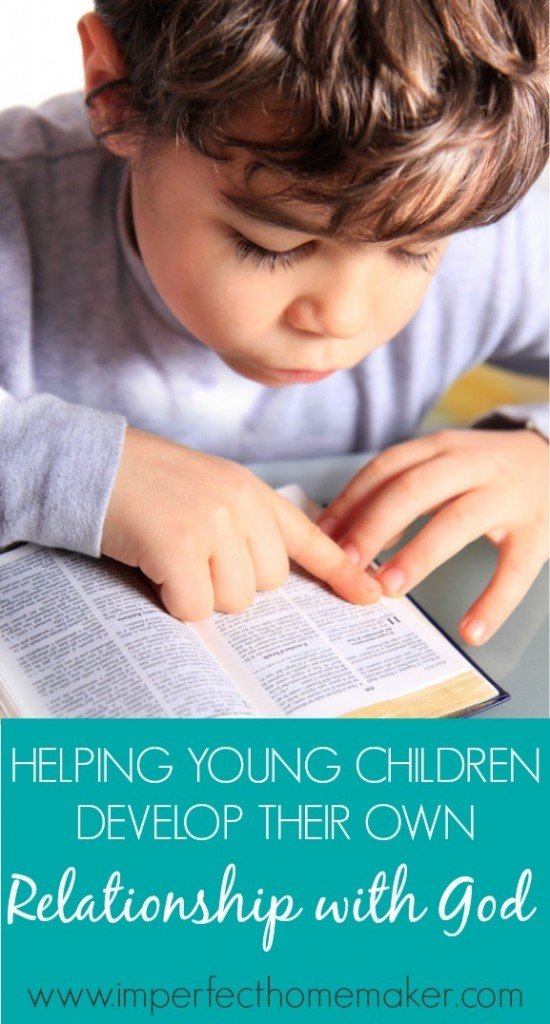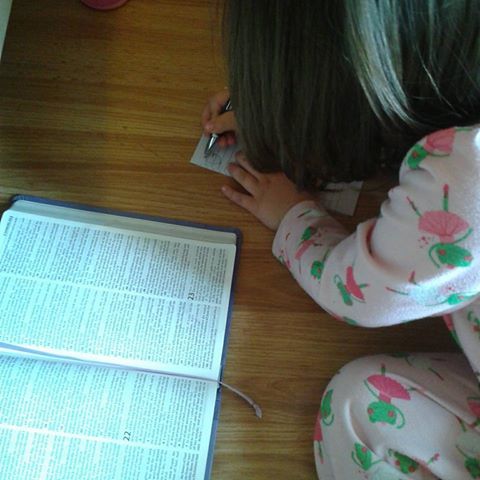When Your Teen is Headed the Wrong Direction
Full disclosure: I have never parented a teen. My oldest child is only 7. I'm not claiming that I will get it perfect when my own children are teens.
However, at the same time, sometimes things seem to be more clear when you are not personally involved in the situation. It's a lot easier to think objectively when your own emotions are not tied to a situation. I know I'm not in your shoes yet, and I fully respect that, but I also know that my thinking comes from an unbiased point of view.
So, with all that said, here goes:
I see many parents of teens or young adults who are not happy with the choices their children are making. They don't want them doing some of the things they do, but they feel powerless to do anything about it. Some of their reasons for not intervening are as follows:
- “I can't make his choices for him forever.”
- “Telling her she can't do that will only estrange her and make her more rebellious.”
- “I'm just not sure what to do, so I will let things play out and hope for the best.”
I have watched various families who deal with teen issues and even watched things go on in my own family growing up where I have thought, “How in the world would I deal with this if I were the parent?! What a tricky situation!”
I've always been a ponderer, so rather than feel sorry for the parent and move on with my life, I almost always mull over and search out what I believe to be the Biblical answer to these tough questions so that I will not be caught off guard when tricky parenting situations inevitably arise in my own life.
When it comes to the teen who is running around with the wrong friends, wasting too much time playing video games, wearing inappropriate clothing, watching ungodly movies, or you name it, how should a Christian parent act?
As I was pondering this question, the Lord brought to mind the passage about Eli and his sons where God said he would judge Eli because his sons made themselves vile and “he restrained them not.”
Yes, it was crucial for Eli to restrain his sons' wickedness because of their leadership position, but did you know your teenagers are also leaders? They are leaders whether they want to be or not. I cannot tell you how many times my son has worn a certain thing, said a certain thing, or did something a certain way because (insert teenager he knows) does it that way. Your teenagers are an example to everyone around them – younger children who look up to them, their co-workers, their friends, their siblings. Are you going to allow your teen to go unrestrained when they are leading so many people – for good or for evil?
It's okay for you to tell your daughter she needs to go change out of her immodest clothing. It's okay for you to tell your son he may not have a smartphone because he is using it to interact with inappropriate people on social media. You are the parent; he is the child, and as long as he lives under your roof, you get to call the shots.
Will your child be angry with you? That's very possible. But loving your child isn't necessarily doing what you have to do to keep them from being angry with you. Loving your child is doing what's best for them spiritually even though it will hurt as a parent to hear the “You're so mean!”s and see the angry looks.
The direction your child is heading determines their destiny. The Bible tells many times that the path of the foolish leads to destruction but the path of the righteous leads to blessing. Which direction is your child headed?
 Is it truly loving to allow your child to continue down the wrong path – the dangerous path – just because you don't want them to be angry with you?
Is it truly loving to allow your child to continue down the wrong path – the dangerous path – just because you don't want them to be angry with you?
Yes, parents of teens. Restraining your teen is the right thing to do.
However, I completely understand the concern that doing so will cause your child to become embittered and withdraw from you.
What is vitally important throughout the entire process is to show unconditional love and grace, and to show through your actions how much you value your child.
Steps to follow when you must restrain your teen:
1. Apologize
If you have not already been working to maintain a close relationship with your child, it is super important that you apologize to them for your lack of time and attention. Explain to them that you have allowed other things to get in the way of your relationship but that from now on you are committed to making them a priority.
2. Explain
When it's time to tell your child that they are no longer allowed to go out with those friends or watch those movies or use those apps, explain to them why. Even though they may not be happy about your decision, they still need to know deep down inside that you are ultimately doing it because you care about them and that you're not just on a “power trip” as I've heard so many teens accuse their parents of doing.
3. Spend time
Now that you've committed to your child that you will make them a priority, it's time to do it! Take your teenagers on dates, eat dinner together as a family, turn your phone off when they start talking to you and give them your undivided attention. Go to great lengths to be at every ball game, show up with chocolate when your daughter is emotional, and say yes to as many things as you possibly can, especially when it involves the family spending time together. These things will take sacrifice, and you will have to give up some of the things you might want to do, but that is exactly how your teenager will know how much you value them – when you are willing to give up your own agenda to do what's best for them.
4. Extend unconditional love, forgiveness, and grace
Remember that your teenager has a sin nature – just like you! They will make mistakes, but that does not mean they need a lecture every time or an over-the-top punishment. Speaking with gentleness and understanding will go much further than displaying anger and frustration.
5. Grow together
Do you want your teenager to be impacted in an incredible way? Be open with them in sharing your own struggles with sin and grow along with your teen. They will see that mom and dad aren't claiming to be perfect and don't expect them to be either. How much more motivating would it be for a teen to humble himself and seek help when he needs it if he knows his parents are not viewing him in a spiritually condescending way? If he has seen their own honesty and watched them use the Word of God to overcome their own sin?
In conclusion, I will once again admit that I have never parented teens and definitely don't have the “corner on the market” when it comes to parenting advice. But I do have the Word of God, and I firmly believe that parents of teens are doing their children a grave disservice when they turn away with a sigh rather than addressing their child's sin head-on.
Should they pray about it and ask God to change their child's heart? Absolutely. But you are still your child's parent and God has given YOU the responsibility to lead them.
Not only do I have the Word of God, but I have my own experience as a teen to look back onto and observe my own parents who have raised 4 children who are now grown and all serving the Lord.
Were there times my parents had to tell me that I couldn't go somewhere or wear something or watch something? Most definitely. But what's interesting is that even though I wasn't happy about it, I was deep down inside very glad for those boundaries and restraints. A mom and dad who wouldn't let me do whatever I wanted spoke VOLUMES to me – it said “They care!” I think having parents who turned away with a sigh would have been devastating emotionally. Watching them turn away wordlessly would say to me that I was not worth the effort and that they truly didn't care where I ended up in life. I am sure I hurt them sometimes by things I said or eye-rolls that I gave them. But at the same time I was so secure in knowing that they were watching out for me. I knew without a doubt that they did not hate me.
Parents of teens, please don't end up like Eli. When others speak of your family in the future, “Whatever happened to ____'s kids?”, don't let the answer be a set of downcast eyes, a shake of the head, and the sad commentary that “he restrained them not.”
10 Ways To Help Your Child Memorize Scripture
Teaching our children how to memorize scripture should be a major emphasis in our parenting. If we desire them to live according to God's Word, we must help them learn it! (<— Click to tweet that.)
Children can memorize much more quickly and easily than adults, and it is very important for us as parents to make sure they are putting as much scripture into their minds as possible during these early years. What goes in now is going to stay there for a lifetime. Do we want it to be nonsense or do we want it to be the Word of God?
Here are 10 ways you can help your child memorize scripture:
1. Scripture songs
Nothing makes memorizing easier than setting something to music. That's why I searched for Scripture songs for kids and ordered several CDs for them. We use KJV exclusively in our family, and I had a hard time finding something that was not another version. When I did find something in KJV, the music was either too “jazzy” for our personal standards or else it sounded like a funeral dirge! (I thought the point was to use a catchy tune to make the song memorable?) But I did finally find something, and it is perfect!
Bible Songs for Kids from Bible Truth Music has catchy tunes that still fit into our personal music standards and are exclusively KJV. They have 8 different albums, and you can order them in either CD or mp3 format.
My kids have only listened to the first CD twice and they are already walking around the house singing scripture. I love it!
There are a lot of songs on each album too. I bought 3 to start with, and that is plenty for now, although I do want to own the whole collection eventually.
2. Copywork
Another way to help kids memorize and make it “stick” is to have them copy it. (Bonus! This doubles as handwriting practice, so we're saving lots of time too!)
You can google around for “free scripture copywork”, but it is a little difficult to find KJV materials. You can also create your own with a handwriting worksheet generator; however, you're not going to have all the cute little pictures on it if that's a big deal to you.
A final option I have found is the Write Through the Bible curriculum. It's a full year curriculum, and it not only has the child copy the verses, but gives them vocabulary words, and comes back periodically to review previous verses learned. They have this available in KJV. You can find that here (digital/printable version) or here (print version)
They also have a junior version (digital version here) (print version here) for children who are still learning to form their letters.
3. Memorize as a family
Children are naturally more motivated to do something when they see mom and dad working at it too. We work on memorizing together as a family before bed each night. You could also do this before meals. Right now we are working on a passage in Proverbs 6. We say the verse aloud several times together and then see who can say it by themselves. We review that verse for several nights and when it's obvious everyone knows it well, we start working on the second verse. When everyone can say that one by themselves, we say the first verse and the second verse together. We review that several nights, then start on the next verse, and so on. I have a whole set of printable family scripture memory cards with some good passages to learn as a family.
4. Use an incentive
We don't want our kids to memorize scripture just because they'll get a prize for it, but at the same time I think a nice incentive for memorizing a large portion of scripture or a large number of individual verses is in order. I want my kids to know that their memorizing scripture is very important and that I will reward them for their hard work on it.
For example, my mom bought this armor of God playset for my son, but she told him that if he really wanted it he needed to work for it by memorizing Ephesians 6: 10-18.
Our teens at church earn money off the cost of teen camp by memorizing entire chapters (and entire books!) of the Bible.
It is possible to hide God's Word in your heart in a BIG way when you really want to!
5. Memorization programs
If it is at all possible for your child can be involved a Scripture memory program at church, do it! We have King's Kids at our church; some do AWANA; some do something else. I learned most of the scripture I know during AWANA as a child. You and your child both will never regret having a set time each week for them to come together with other children to memorize and recite scripture. What they learn there will be with them for the rest of their life.
6. Choose a verse from their devotions
Are your children spending their own personal time with the Lord? (This is what I have found to be very helpful in guiding them with that.) I encourage my kids to choose one verse from their Bible reading that day to memorize during their quiet time. This also helps them pay attention a little better to what they are reading.
7. Hand motions
When you incorporate as many of the senses into memorization as possible, you greatly increase the chances of remembering what you've learned. Young children seem to especially enjoy adding hand motions in to help them remember the next part of the verse. For example, when we memorized Proverbs 6:10 – “1Yet a little sleep, 2a little slumber, 3a little folding of the hands to sleep” – I 1laid on my hands on one cheek, 2laid on my hands on the other cheek, and 3folded my hands on my chest. It's very simple, but it helped my 3 year old remember the verse much better.
8. Different voices
Repetition is the key to learning, but to make sure it doesn't become boring, try to mix up what you do. Kids think it's funny to say the verse in different voices. “Let's say it in our high voice/low voice/opera voice/hillbilly voice/etc. You can also have them turn around backwards, stand up, sit down, etc.
9. Make sure they understand it
It's much easier to memorize something if you understand what it means. When my children are just trying to say a bunch of words, they will have trouble, but if they know the concept behind the verse, their mind flows with the general idea and they can get through the verse. Even if they can't get through it word perfectly, they still know what the verse is talking about and they can continue on without getting stuck.
10. Scripture art in the home
When you look at something enough, you memorize it without even thinking about it. Keeping scripture prominently displayed in your home will help you and your children both hide more of God's Word in your hearts. You can find several printable scripture verses here on the blog. (Psalm 51:7, Psalm 46:10, Philippians 4:4, Proverbs 31:26, Phililppians 4:8)
8 Ways to Prepare Your Little Boy to Be a Man
Little boys are wonderful, but they will not stay little forever. When they are grown they will be men – men with life responsibilities, wives, and families. What tools do our little boys need to be properly equipped to face manhood?
As the parents of these little boys, we must be actively working to provide them with the tools they need to face life as a man. As the husbands and fathers in our society become less and less able to handle the pressures of life in a Godly and responsible way, our families, our churches, and our country begins to crumble from the inside out. Let's raise up a generation of real men who will stand for God, take responsibility for their families, and and do right at all costs!
So what are some of the ways we can prepare our little boys to be men? What are the things we must be teaching them?
- Strong work ethic
My husband has been a manager at several different work places through the years, and it has been surprising to see how lazy some of the young men who have worked under him have been. Some of these guys have come from good Christian homes, but somewhere along the line their parents failed to teach them that W-O-R-K is not a dirty word.
A man's responsibility is to work hard to provide for his family's needs. He's not going to get very far with that if he's lazy. Let's teach our boys not to be lazy! When they clean their room, let's constantly be reminding them what the Bible says about doing things with all our might. Let's not accept a slip-shod job on their chores, but make them go back and do it again until it's done right. (This requires discipline on the part of the parents too, by the way!)
- Money management
A real man provides for his family, not only by working hard to pay the bills, but also by being a wise steward of his resources. We must teach our boys how to handle money wisely and how to exercise self-control over spending frivolously. (See also: The Secret to Living Debt Free)
This will look different for different families, but boys need to be taught in some way how to budget their money and then to be disciplined enough to stick to the budget.
- Courage
It seems to be a common parenting philosophy these days to “protect” our children to such an extent that they are not allowed to do anything that could even remotely be construed as “dangerous”. Play with sticks? Nope. You could poke your eye out. Ride your bike down that hill? No. It's entirely too steep. For that matter, let's just put your bike away altogether. You could break an arm. Jump off the top step of the porch? Not a chance.
We have stifled our boys' natural sense of adventure and embedded fear in its place. Is it any wonder that so many young men these days are effeminate?
I want my boys to be bold enough to look fear in the face and do what needs to be done even if it means putting his life on the line to protect his family.
- Gentleness with ladies and children
Just as I want my boy not to be effeminate, on the flip side that does not mean he needs to plow through life with unbridled crudeness. He can be a real man and still hold doors for ladies, refrain from rude noises in the presence of ladies, and treat children with gentleness and compassion. In fact, he's not a real man if he can't discipline himself to treat ladies and children properly.
(See also: 13 Things I Want My Son to Learn Before He Turns 13)
- Decision making
Someday as the head of his family, my boy will be responsible for making some hard decisions. Providing him opportunities to be independent will help him learn that skill. Micromanaging a boy's life is not doing him any favors for the future. This may require a little bit of sacrifice on our part, mamas. Perhaps we'd like him to organize his things in a different way or choose a different shirt to wear, but if it's not hurting anything we need to give our sons the freedom to make some of those choices on their own.
There's a fine line between teaching a boy to obey his mama and forcing him to relinquish all control over any decision making. Let's make sure our boys know how to grow up thinking for themselves instead of cowing to our every whim.
- Taking responsibility
A boy's mama is not his maid or personal servant. If he lives in the house he needs to help do the work. A boy can help do his laundry, clean his room, take out the trash, and even cook his own breakfast on occasion. That's not cruelty; that's life preparation. If we coddle and pamper our boys, they'll be in for a rude awakening when they find out there's nobody there to bail them out of fixing the stopped up toilet, fixing the car, or repairing the leak in the ceiling. And his wife! Oh the poor dear! He'll be expecting the same coddling and pampering out of her when he really needs to be picking out his own clothes and making sure his own dirty socks make it to the hamper.
Many husbands have an entitled, “serve me” attitude toward their wives because their mama trained them to expect to be served. Let's train our boys to be the servant rather than the served. (No, I absolutely don't think there's anything wrong with a mama serving her family and doing kind things for them. But let's be very careful to make sure our kids don't develop an attitude of entitlement. They aren't going to learn responsibility just by watching your example; they need to practice it by having responsibilities of their own.)
- Be leader; not a follower
We need men today who are leaders rather than followers — men who do right even if nobody else is doing it. Let's teach our boys that they don't have to follow the crowd. Let's encourage them when everyone is making fun of them for being so “uncool”. Let's not give in when they want to do this, that, or the other just because everyone else is doing it. Let's raise up strong men who will lead their families, their churches, and their country in righteousness.
- Personal relationship with God
A man will never possess any of the other qualities mentioned without his own personal relationship with God. He may do these things out of habit just because mama helped him develop those habits, but when the pressure rises, so will the temptation to abandon what he knows is right and take the easy way out. But if he has a strong relationship with God, first through salvation and then through spending time daily in God's Word and prayer , he will be fully equipped to handle the decisions and responsibilities that come his way and to lead his family spiritually.
(See also: How to Teach Young Children to Develop a Personal Relationship With God)
God bless you as you strive to train up a generation of young men who will grow up to serve God with all their hearts!
Helping Young Children Develop Their Own Relationship with God
It has been the desire of my husband and I to instill a habit in our children of spending time in the Word of God and prayer daily.
I want them to grow in their knowledge of and trust in God, and I want them to get to know him in a personal way.
Before they could read, I would invite them to join me as I spent my own time studying the scriptures and I would read aloud to them.
Now that the older two can read, I want them to start spending personal time alone with God.
But the question I had was how to help young children understand what they were reading!
I started out by jotting down questions from the day's passage for them to answer. Then I found that I needed to explain certain words for them. Trying to get all this written down ahead of time for them was becoming time-consuming and I often didn't have it ready for them when a new day began and they were ready to start on their Bible reading.
I found a couple different options that I recommend for parents who are trying to help their children develop their own quiet times with God.
Option one:
Exploring the Bible: A Bible reading plan for kids
I didn't want a children's devotional that was basically a cutesy story with a Bible verse to go with it. I wanted something that would actually help my children understand how to study the Bible for themselves, and this book fits the bill really well.
Exploring the Bible takes children on a tour through the Bible, laying a foundation for their knowledge of God and the gospel.
It contains:
- Daily Bible readings
- Prayer points
- Memory verse
- Discussion questions
- Space for sermon notes and reflections
This particular book says it's for ages 6-12. My children started using it when they were about 8 years old, and it was a tiny bit challenging for them even at that age.
Option 2:
Once children are a little older, they can start studying out a passage for themselves without specific prompts.
This Quiet Time Journal helps kids learn how to ask themselves questions as they read.
This journal is not a Bible reading plan – it is meant to be used with whatever passage of scripture your child chooses to study. This is a great option for older kids or teens who are becoming more and more independent.
I love to see my kids pick up on the blessing of having access to scripture and getting to know God better from it! I hope these tools will help your kids do the same!
There is no reason to wait to get started teaching your children to spend time developing their own relationship with God!
Helping Small Children Manage Big Emotions
As far as I can remember, I was not a highly emotional child. (Maybe I was and just forgot what it was like.) But when I had children of my own, I was in for a bit of a surprise! I had one child in particular whose big emotions were a regular part of our family life.
She would erupt into screams at the drop of a hat. And as the saying goes, she would drop the hat.
If she even imagined that she stubbed her toe, she would cry as loudly as if she’d broken it.
If her brother was being mean to her, she could deliver quite an intimidating speech.
If she was disappointed, there would be weeping and wailing.
I was rather surprised by all this drama, and for a long time I didn’t know how to handle it. My knee-jerk reaction was to tell her that she needed to stop overreacting. But my efforts to stop the emotional outbursts in their tracks almost always made her cry all the harder.
I'm not a perfect parent, but I've at least learned since then that shutting someone's emotions down is not wise.
Below are some of the ways I've attempted to help my children
- Use their feelings as information
- Learn strategies to calm themselves
- Learn to respond appropriately to how they're feeling
I came up with three different aspects that go into helping my children mange their big emotions.

1. First, I've learned to view their big emotions with a compassionate heart and a curious mind.
Children's big emotions can be driven by many, many factors, such as hunger, tiredness, frustration, or simply from feeling the intensity of navigating a confusing world while their brains and bodies are rapidly developing.
We as adults can find ourselves experiencing unpleasant feelings that seem to have no logical origin. We can feel a nagging sense of worry, or we can feel a bit weepy, or we can feel crabby. Most adults know better than to push those feelings outward onto others. We know that to be snappy with others would not be right even though our bodies might feel grumpy. We'd be socially embarrassed to let tears start flowing in front of everyone when there's not really a logical reason to cry. But that doesn't change the fact the fact that we do feel those emotions. And the reasons behind those are often the same reasons behind what are children are feeling in their bodies too – hunger, tiredness, hormonal shifts, or simply the intensity of navigating the daily stresses of the world.
Sometimes the things we feel do overpower us, and we do find the tears flowing over nothing in particular. We do find ourselves being short with others when our bodies are tense with stress. We are more likely to have compassion on ourselves at these times, though, because we understand where those behaviors are coming from. We recognize our hormonal cycles and know that even though there's not a “reason” to cry, the hormonal changes are reason enough. We should apologize when we've spoken to others out of our grouchiness, but we also know that the issue was more about the weakness of our body than it was intentional wickedness.
Helping a child with their big emotions is no different. To tell them to stop overreacting is to discount all the tiny, real feelings that have built up inside their body. When our child's emotions start spilling over onto the people around them, a compassionate hug will go a lot further to calm them than a stern word.
As Christian parents, the fruit of the spirit should be spilling over from us onto our children. Are we showing them the gentleness of the Holy Spirit?
2. Proactively teach children how to respond to what they're feeling.
When a child is already upset, they will not be able to engage the rational, thinking part of their brain. The heat of the moment is not the time to teach my children how to respond when their siblings are rude or when they didn't get the biggest helping of dessert.
Some of the emotions I've tried to proactively teach my children how to handle are
- anger
- disappointment
- frustration
So for example, we can have a conversation like this, “If someone does something you don't like, what can you do? Should you scream at them? Or can you ask them nicely to stop? And if they don't stop, what can you do? Can you come ask mommy to help you?”
We can teach our children how to use words rather than screaming or hitting when they're feeling angry or frustrated. Then in the moment, when their big feelings rise to the surface, we can remind them of what they've already learned.
3. Teach children additional calming techniques.
Help them take deep breaths to calm themselves when they're upset. Teach them how to leave an upsetting situation rather than engaging with it. Teach them how to be in tune with their physical needs like food, water, and sleep, which will greatly impact how they're feeling emotionally.
All of these things take consistent practice and teaching, and that is why the gentleness and compassion mentioned in point number one are so important. Compassion does not excuse our children's bad behavior, but it does investigate whether there are underlying needs that have gone unnoticed (blood sugar, hydration, sleep, emotional connection, getting away from overstimulation.)
Children need to understand that emotions are normal and that they haven’t done anything wrong by having those feelings. But they also need to be taught what to do with those emotions.
As parents, we need a lot of wisdom to know how to help our children with their big feelings. Thankfully, God promises that he will provide it (James 1:5).
Here are some resources that have helped me as a parent to understand a little more about my children's big emotions:
affiliate links below
1. The Highly Sensitive Child: Helping Our Children Thrive When the World Overwhelms Them
(These books are not written from a Christian perspective, but I have learned many things from them about the way the brain works that allow me to be a more understanding and gracious parent.)
How to Remind Kids to Do their Work (Without Nagging!)
Today I have a simple parenting tip for you.
I know you're working hard at following through when you've given your child a job to do. (I am too! It's hard to stay on top of it, isn't it?!)
We don't want our kids to take the easy way out all the time and leave responsibilities unfulfilled, but it feels like you're nagging them all the time when you're constantly having to remind them to get a job done.
I suppose it comes with the mom territory, but no mom wants to feel like she's constantly nagging her kids.
So here's how I remind my kids to do what they need to do without nagging them:
I make a statement that gives them the benefit of the doubt.
For example:
“I'm assuming you were about to take the trash out, right?”
“I'm assuming you haven't forgotten to finish your piano practice?”
“You were planning on putting that away when you're finished, right?”
This way the statement reminds them and reinforces what needs to be done without either one of us feeling like I am constantly saying “Do this. Do that.”
I know when I was a kid I would get so frustrated when I really was getting ready to unload the dishwasher and then mom reminded me. Here I was all happy that I had actually remembered on my own and then being reminded took the wind right out of my sails. My kids have said similar things to me. (“It's no fun doing it when I don't get to do it without being told!”)
But at the same time I can't just let everything go undone and hope that they'll eventually remember to do it. I have to say something, so hopefully phrasing it as a statement assuming that they are already on it takes a little of the sting out of being reminded to do their jobs.



















